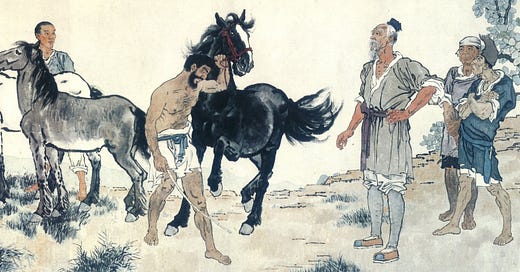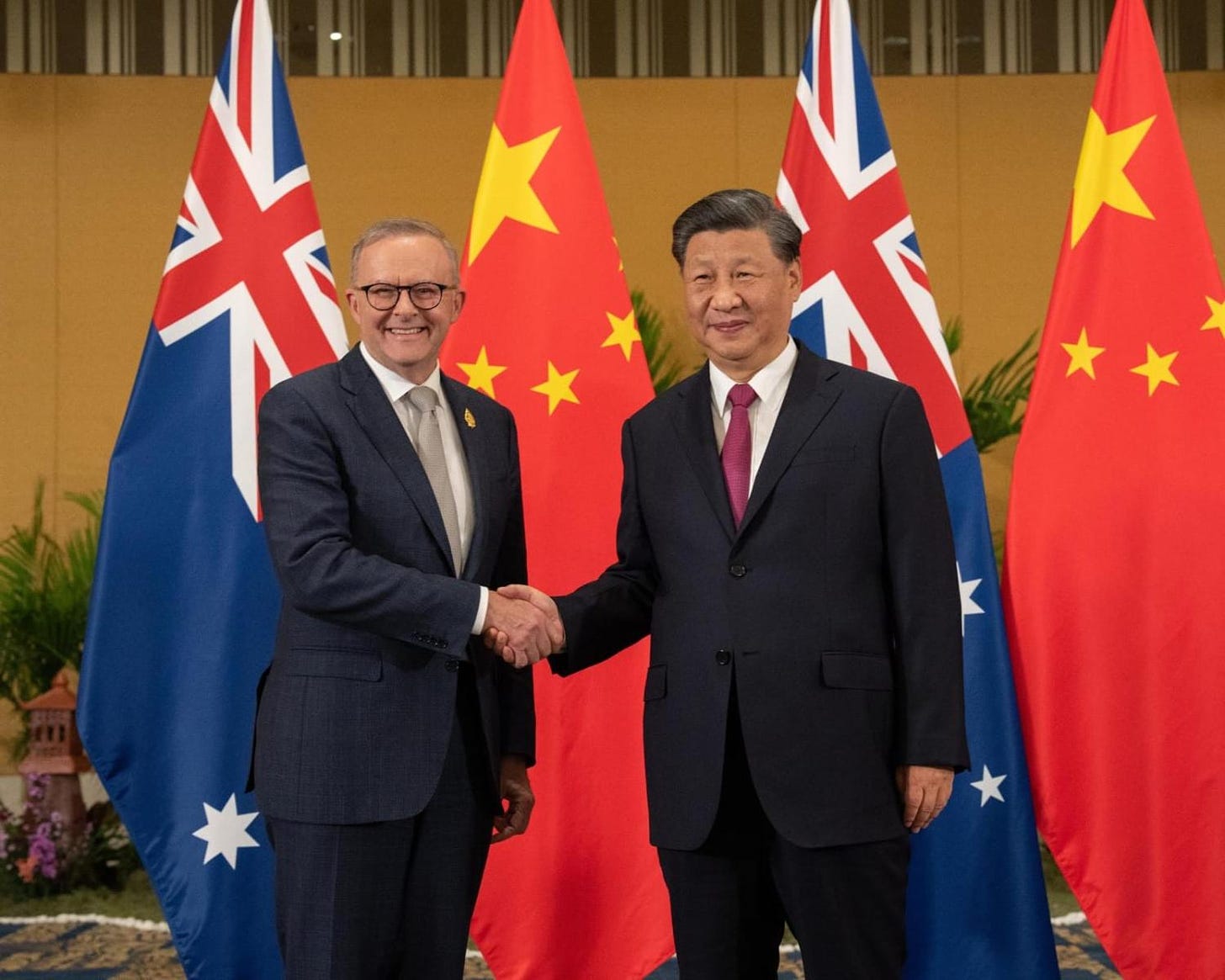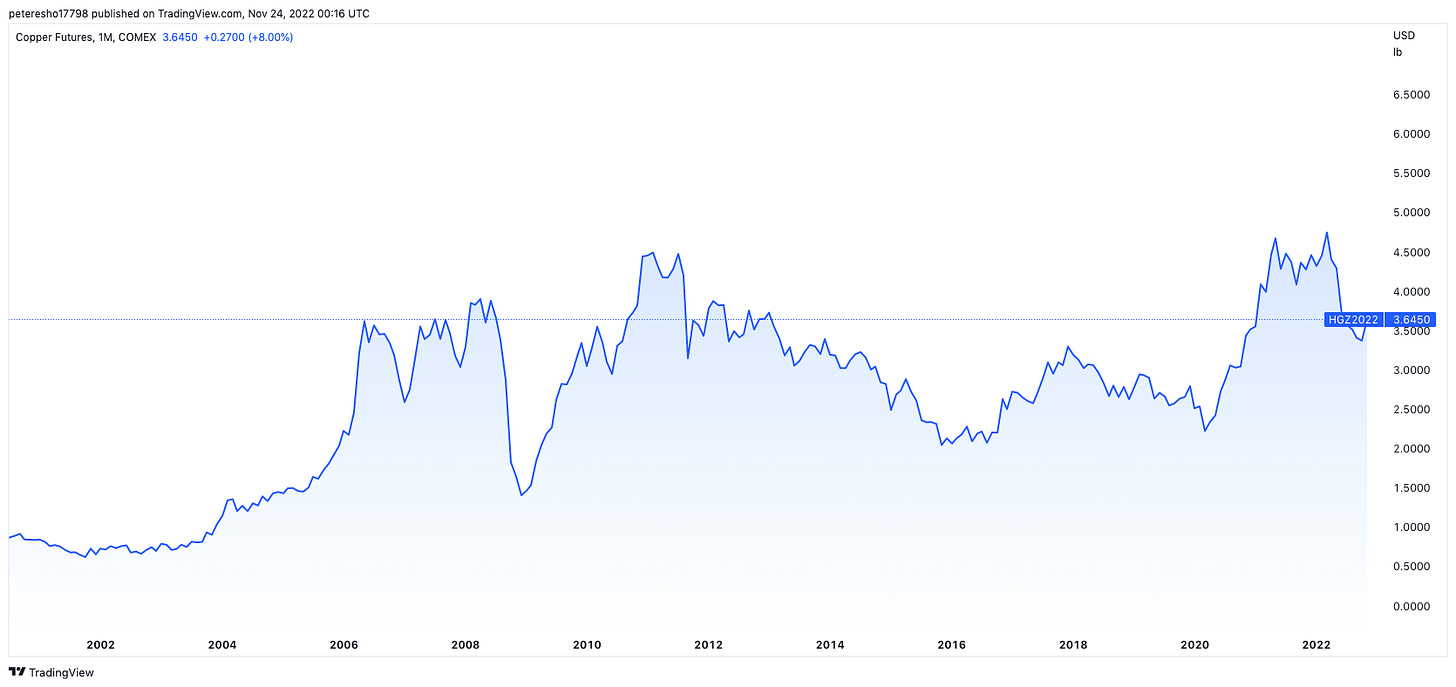China's economy to bounce back stronger than ever
One of the most interesting themes playing out in the early days of the FIFA Football World Cup is the surprises, both Saudi Arabia and Japan shocking traditional heavyweights Argentina and Germany. Football is a world sport and often a microcosm for everyday life.
We can’t read too much into first round results, but they remind me that we typically live in a very western, insular-focused bubble. The world is constantly changing. Every nation has its own unique aspirations and realities. The world cup shows us that rate of change.
We are reminded that the world doesn’t revolve around us. So are these results really surprises?
Saudi Arabia has one of the world’s fastest growing populations under 40 years of age. Two thirds of the population are under 40. There has been a huge amount of economic and social reform in the country, which will no doubt continue. Most of the change we will never see or understand. But it is happening.
Japan is also a significant global player, although the demographics are not as favourable to Saudi Arabia. Probably the exact opposite. Still, Japan is the world’s third-largest economy (larger than Germany) and home to 125 million people.
My point this week isn’t a football analysis or comparison. Instead, an opportunity to stand back and look at thematic changes that are likely to dominate investment markets in the decades to come. Possible ones that we often miss because we live in a confirmation bias, blinded and clouded world.
Which brings me to one of the most misunderstood investment themes — China. Most of the market has been focused on the China’s shift away from its zero Covid policy this year. It’s a very temperamental way of looking at things, peering into small data points to see if they are signalling a relaxation or tightening. I think that’s the wrong way to think about China.
I am by no means a China expert, but I also don’t think a China expert actually exists. There’s no such thing as owning the China narrative outright, and there is also no such thing as a blanket, one dimensional view on China.
It’s a very big investment thematic that I think still has hundreds of years left to play out. Every investor needs to be open-minded in regard to China and mindful that China’s space in the global economy, including your investment portfolio, is significant.
A sign of shifting Chinese relations?
The recent G20 summit could be an important pivot point. We perhaps saw some signals of what to expect next year as China, on its own terms and within its own sovereignty, decides to relax lockdown measures. There’s a sense of change in the air and being in Australia, we perhaps see these things sooner than others.
China and Western relations really started to deteriorate in 2018 when the former Trump administration initiated the computer chip wars. That sent things into a spiral and we are now entering the fifth year of the impasse.
Western economies, already struggling with their own financial and social problems, have recently relaxed rhetoric and it feels like we are in the early stages of a shift away from the 2018 pivot.
Bloomberg recently reported Former Treasury Secretary Lawrence Summers warning “US policymakers to focus on building the country’s own economic strengths in its contest with China, rather than on attacking its adversary.”
Politico reports incoming British PM Rishi Sunak softened his language on Beijing. He twice refused to back his predecessor Liz Truss’ plans to elevate China’s status to that of a “threat” in an upcoming refresh of the U.K. government’s foreign and defence priorities. The original version of the U.K.’s integrated review, published last year, describes China only as a “systemic competitor.”
A competitor is different to a threat. It’s a small pivot, but one which could open the door to more change in 2023.
China’s investment implications
I’ll be elaborating on this theme more over the next few months. The most obvious implications of a Chinese opening will be on commodity prices.
Bulk and industrial commodities move higher once the US Fed stops raising rates and the US dollar starts to fall. A Chinese opening will provide upside pressure on energy markets, but this will be perhaps offset by weakness in the US and Europe.
Outside of commodities, I see a 2023 Chinese resurgence as positive for corporate earnings. There is a global shift to localise manufacturing post Covid, I don’t think that changes.
We probably over optimised our supply chains and there was a lot of damage caused by the pandemic disruption. There will be manufacturing coming back onshore in many countries.
But China will play an important role in making that supply transition happen. New factories in the USA, Europe and Asia will need to be built and China’s role in the supply chain is going to be critical in making that possible. It’s net positive for China.
Commodity economies prime for a rebound
We’re also going through a one in a lifetime energy transition. There are around 1.4 billion vehicles in the world currently powered by fossil fuels. In comparison, we estimate 6-7 million electric vehicles in the world and the number is expected to rise to 150-200 million by 2030. The adoption curse is enormous.
China is the world’s largest manufacturer of electric cars and a major player in the supply chain for critical components. Every new car will need raw materials.
And that’s only cars, the ramifications for our entire energy ecosystem are enormous. Iron ore, lithium, nickel, copper. The transition to a cleaner economy will require all of these inputs.
That’s why I’m so bullish on Australia. Not only do we have world-class resources, but also a cultural and geographic connection to Asia unlike Latin America or Canada. Around 6% of Australia’s population have Chinese ancestry and the recent political tension has highlighted a sense of unease among the social and business community fabric, which policymakers are aware of.
In some parts of metropolitan Sydney and Melbourne, Chinese language is spoken by 10-15% of the population.
A normalisation of Chinese relations, coupled with a weaker US dollar and higher commodity prices, is one of the most compelling investment themes to drive Australia (and to a lesser extent New Zealand) economies over the next decade.
That could be the cushion to provide a soft landing from rising rates. Australia might not be winning at the football world cup, but it is competing and we always punch above our weight. Never ride us off.







